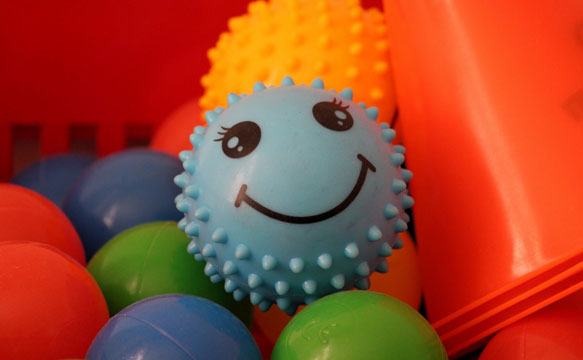The Gift(edness) of Play
What does it mean to be gifted?
There is no one way to be gifted. Gifted children and adults are neurodivergent, and like other neurodivergent people, may think differently, feel differently, and see the world differently from their neurotypical peers.
Many gifted individuals are intellectually and academically talented, highly sensitive to emotional and sensory stimuli, and susceptible to bullying and social ostracization.
Many gifted individuals strive for high achievement and judge themselves harshly for falling short of their perfectionist standards.
Play therapy can be a powerful way for neurodivergent, including gifted children and adults, to experience a new way of being in the world.
Play therapy isn’t just for kids! Adults and children alike learn about life through play, and play can help put us in touch with our creative and most authentic selves.
Play therapy helps gifted individuals access the inner child
As we grow into adults, many of us lose touch with the childlike parts of ourselves—the parts that know how to have fun, and see the world in creative and imaginative ways. Yet due to atypical development, many gifted children do not have the chance to experience childhood the way other kids do.
Gifted kids are often parentified, or treated as older than they are due to their intellect. Many gifted children take on adult responsibilities early in life, and may be perceived as more emotionally mature than they really are.
Play therapy allows these children to just be kids, free from adult expectations and high performance standards. It also allows gifted adults to get to know their inner children, which may not have been seen or acknowledged in their early life.
Play therapy is a safe place to explore intense topics without judgment or restrictions
Many gifted individuals grapple with deep thoughts and emotions, and are concerned with big existential questions. Many of the gifted folks we work with at TheraThrive struggle with doubts about the meaning of life, what it means to be a good person, broad social and political issues, existential threats to humanity, and the nature of death and the afterlife.
This can lead them to feel alienated from neurotypical peers, who may be put off by such intense topics. Gifted individuals can struggle with small talk and may feel that they do not have many people in their lives in which they can confide.
Play therapy is a safe way to explore heavy or taboo thoughts, which individuals may struggle to process in other ways. By utilizing metaphor, symbolism, and storytelling, play therapy can provide some psychological distance from these topics—allowing people to explore the depths of their emotions without becoming overwhelmed. This allows folks to find meaning and experiment with how they want to live their lives, despite the overwhelming and painful parts of existence.
Play therapy helps with empowerment, self-esteem building, and identity formation
Gifted kids and adults often feel othered and different from people their own age, due to their high sensitivity and often divergent interests. This can lead to a sense of isolation or loneliness, resulting in feelings of rejection and low self-esteem.
Many gifted individuals feel underchallenged and misunderstood, and can struggle with mental health difficulties like depression, anxiety, mood disorders, and more. Many are also neurodivergent in other ways, and might struggle to feel accepted due to ADHD, autism, sensory processing difficulties, or other differences.
Engaging in play with a trusted therapist can combat these feelings by helping gifted individuals feel more seen and valued. Through play, they can learn to recognize and appreciate their strengths, and find ways to connect with others that don’t rely on neurotypical social norms.
Join us!
Interested in getting creative with us, getting assessed for giftedness, or learning more about play therapy? Schedule an intake with us here!
Play therapy helps combat perfectionism
Perfectionism is a core issue for many gifted individuals—many of whom were held to high standards of achievement in childhood. The pressure to be perfect can lead to serious mental health issues, and can make it hard for gifted individuals to recover when they make mistakes or encounter failure.
But mistakes are an important part of life! They are necessary in order for us to learn, grow, and evolve. If we are too afraid to make mistakes, we stop taking risks, and can easily get stuck in life.
Play therapy can help gifted individuals get more comfortable taking risks, making mistakes, and bouncing back. Because there is no wrong way to play, the therapy room becomes a safe place to get comfortable with messiness and imperfection. Play often involves changing things up and messing around—which makes mistakes and missteps not only okay, but valued!
This article was first created at TheraThrive, written by Grace Malonai, PhD, LPCC, BC-TMH




0 Comments